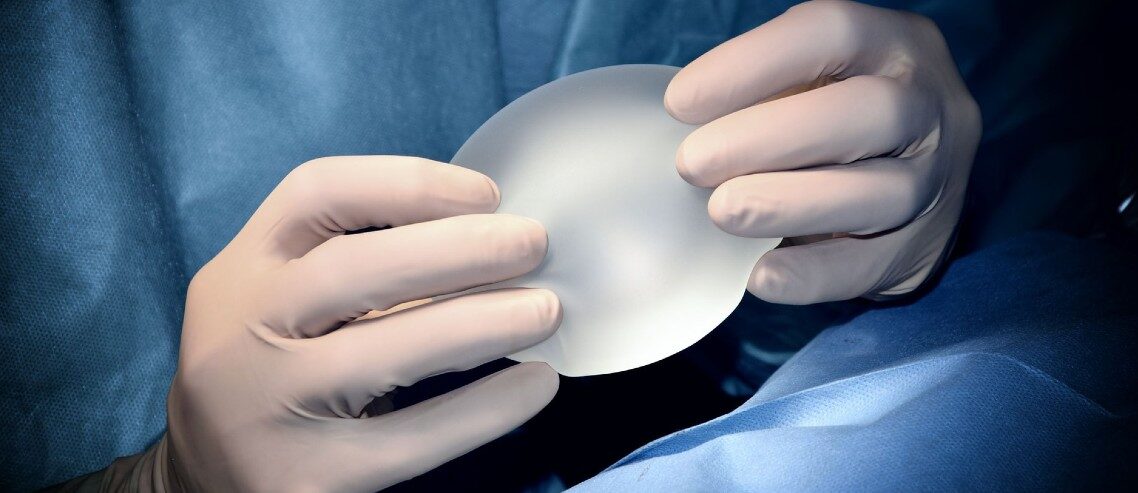The Boom of Plastic Surgery in Thailand
Plastic surgery, or cosmetic surgery, is popular in Thailand. The experienced and skilled surgeons, first-class treatments, and the affordable cost combined into an all-around package. People from all over the world travel to Thailand to improve their appearance or fix their physical imperfections.
However, any form of surgery comes with its own health risks, which is why virtually all cases of plastic surgery are excluded from health insurance coverage in Thailand, unless it is considered medically necessary, such as breast reconstruction surgery for mastectomy.
In this Pacific Prime Thailand article, we will discuss the popularity of plastic surgery in Thailand, the risks of plastic surgery procedures, and the implications on health insurance.
Plastic Surgery in Thailand
For many years, the country has been known for offering a range of procedures and surgeries performed by doctors who have received specialist training in Western nations.
Prior to the pandemic, millions of people flocked to Thailand every year to take advantage of the country’s modern healthcare facilities, top-notch surgeons, and state-of-the-art equipment. They form the cohort of travelers that go to Thailand purely for the medical tourism industry.
The cost of plastic surgery in Thailand is more affordable than in other destinations around the world. A patient could potentially save thousands by undergoing the procedure in Thailand. Thailand is also a top tourist destination, this allows patients to recover in luxury hotels and resorts.
What Are the Common Procedures That Medical Tourists Opt for in Thailand?
Most plastic surgery institutes offer a comprehensive range of plastic surgery aimed at reshaping the appearance and improving lifestyles. Common procedures include breast augmentations, liposuctions, rhytidectomy, and blepharoplasty.
Breast Augmentation
This procedure is also known as ‘augmentation mammoplasty’, which involves using implants to tone, volumize, and enhance the attractiveness or appeal of the entire chest area. The operation normally takes 1.5-2 hours. After the procedure, you are allowed to continue resting at home.
During the recovery process, surgeons will warn against any heavy lifting, exercise, and avoid smoking, drinking, and fermented food for two weeks. It is also advised that patients wear bras without wires for at least one month.
The risks associated with this procedure include:
- Infection
- Nerve injury
- Numbness around the areola and nipples
- Possible leakage over time leading to revision surgery
Rhinoplasty
Also known as a nose job, rhinoplasty is one of the most popular plastic surgeries globally. This is because the procedure is performed for cosmetic reasons, as well as to overcome health problems, such as those caused by an abnormal nose structure or cavity. .
The procedures vary depending on the individual and could be either a nose implant or removal surgery, nose reshaping, or augmentation rhinoplasty. The risk associated with this form of surgery is again worth noting. After the procedure, you may experience:
- Hematoma
- Poor healing at the site of incision
- Damage to subcutaneous blood vessels
- Underlying nerves
Abdominoplasty
An abdominoplasty (commonly referred to as the tummy tuck) is a standard procedure that removes excess skin and fat from the lower and middle region of the abdomen. Doing so helps tighten the wall of the abdominal muscles, which enhances the appearance of the abdominal region of the body.
The risk of proceeding with a tummy tuck includes:
- Hematoma or bleeding in the abdominal region
- Infection
- Blood clots
- Numbness of the area of the incision
- Anesthetic risks
A full consultation with your surgeon will give you a better understanding of what to expect and prepare for. Before the procedure, the patient may be required to stay in the hospital for at least 2-3 days to prepare for additional tests or scans and remain nil-by-mouth before the procedure.
After the procedure, the patient may be required to stay to recover for 5-7 days with frequent follow-up checks after discharge for removal of stitches and wound cleaning.
Rhytidectomy
This procedure is commonly known as a facelift and can improve the visible signs of sagging skin around the face and neck as we age. Reasons why patients opt for a facelift include:
- Fat tissue has been displaced from the muscles.
- Loss of muscle tone in the lower face may create jowls. Jowls are the lower part of a person’s cheek, where the skin droops. Around the lower jaw, saggy skin also creates an impression of possessing a double chin.
As the procedure is focused on the face and neck, it is important that the incision sites are not subject to any excessive force or sudden movements, which may damage the incision cuts and prohibit the healing process.
Liposuction
Liposuction removes the excess fat under the skin. The removal of fat can be done on your hips, belly, buttocks, back, arms, or face to improve the figure and appearance. This procedure normally occurs in tangent with other procedures such as breast reductions, tummy tucks, and facelifts.
Some of the risks attached to this surgery include:
- Bleeding
- Fat necrosis
- Skin contour irregularities
- Sagging of the skin
- Possible scarring in areas that do not heal fully
Blepharoplasty
Blepharoplasty is a surgical rejuvenating process that can be done on the upper and/or lower eyelids. The procedure includes excision of drooping eyelid skin, repairing the muscles that opens the eyes, and removal of excess fat around the area.
Risks involved include:
- Temporary vision problems
- Swelling or asymmetry changes
- Acne
- Eye closure problems
- Ectropion
What Are Some of the Best Medical Facilities for Cosmetic Surgery in Thailand?
Some of the top-rated hospitals and facilities that offer a wide range of plastic surgery procedures include:
- Sikarin Hospital in Bangkok
- Thainakarin Hospital in Bangkok
- Phi Beauty Clinic in Phuket
- B. Care Medical Center in Bangkok
- Radiant Medical Phuket
- Nirunda in Bangkok
- Absolute Care Clinic in Chiang Mai
- Chiangmai Ram Hospital in Chiang Mai
- Pyoderma in Bangkok
- Bangpakok 9 International Hospital in Bangkok
Costs of Plastic Surgery in Thailand
The cost of plastic surgery procedures will vary as there are many different tiers and levels of treatment. Top-end hospitals can charge high, owing to their excellent facilities and reputable staff. Conversely, smaller institutions may be cheaper, but standards may not be as high.
Below is a plastic surgery packages table from the Bangkok Hospital, listing some of the procedures they offer and their prices.
| Procedure | Length of Stay
(nights) |
Price (Baht) |
| Breast Augmentation (Gel/Saline) | 1 | 172,000 |
| Face & Neck Lift | 1 | 251,000 |
| Upper or lower Blepharoplasty (Local Anesthesia) | 0PD | 55,000 |
| Combined Upper and Lower Blepharoplasty (Local Anesthesia) | 0PD | 90,000 |
| Liposuction with Vaser (up to 1-2 hours) | 1 | 162,000 |
| Rhinoplasty Local Anesthetics | 0PD | 42,000 |
Tips to Consider When Making the Decision to Opt for Plastic Surgery
Doing research before you make a life-changing decision is imperative. Dedicating the time to finding a top-notch facility for your procedure and the best medical team with credentials that can also speak English will make the entire process easier and safer.
It’s advisable to keep the following in mind:
- Request a tour of the facilities and the chance to meet and know the medical team before undergoing the procedure.
- Check that the medical team is qualified and fully insured.
- Do your due diligence to review the past procedures, successes, and any uneventful procedures to give you a broader perspective to weigh your risks.
- Request for official certification of associations that the medical team and facility are part of. For example, the International Society of Aesthetic Plastic Surgery (ISAPS) and the International Confederation for Plastic, Reconstructive and Aesthetic Surgery (IPRAS) are recognized by international bodies.
Health Insurance in Thailand
When looking to secure comprehensive health insurance plans in Thailand, the golden rule is that insurers will not cover elective procedures. These are procedures that are scheduled in advance and are not deemed a medical emergency.
Therefore, all plastic/cosmetic surgery procedures are excluded. For further information, check our infographic for an easy-to-understand summary of health insurance exclusions.
If you require expat health insurance, you can be reassured that Pacific Prime Thailand has the right plan to cover your needs and within your budget. The process is relatively straightforward with the help of an expert broker like ours.
As a fully licensed insurance brokerage company, Pacific Prime Thailand is proud to offer exceptional policies in partnership with the industry’s best insurance companies for travelers and expats alike.
Contact us for professional advice and a free quote today!
Frequently Asked Questions
Is Thailand a good place for plastic surgery?
Thailand is a popular destination for plastic surgery (or cosmetic surgery) for a number of reasons. First, many surgeons received specialist training in the West. Secondly, the country offers a range of world-class hospital treatments at an affordable cost.
Is it safe to get plastic surgery in Thailand?
Thailand is home to a selection of hospitals that rank among the most modern hospitals in the world and have strict patient safety standards and infection control procedures. However, please note that performing any type of surgery comes with its own risks.
What is the most popular plastic surgery done in Thailand?
In 2020, approximately 21.1 thousand rhinoplasty was performed in Thailand, making it the most popular procedure. Other popular procedures include blepharoplasty and breast augmentation.
- How to get a Thai driving/motorcycle license: Documents and tests - August 7, 2023
- Dual Pricing at Thai Public Hospitals and the Implications on Foreigners - June 22, 2023
- Tesla starts EV sale in Thailand - December 12, 2022





Comments
Comments for this post are closed.
We'll notify you
when our team replies!